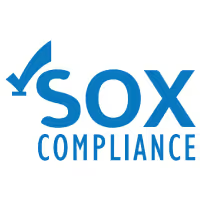
SOX
How to make your CRM platform export data for SOX audits
Learn how to export CRM data efficiently for SOX audits with our step-by-step guide to ensure compliance and accuracy.

SOX
Learn how to export CRM data efficiently for SOX audits with our step-by-step guide to ensure compliance and accuracy.

What is
A SOX Audit Data Export for CRM platforms refers to the systematic extraction of transaction data, user access logs, and configuration changes from your customer relationship management system to demonstrate compliance with the Sarbanes-Oxley Act (SOX). This export creates an auditable trail of financial data processing activities that occur within your CRM environment.
Think of SOX Audit Data Export as creating a comprehensive digital paper trail showing who did what with financial information in your CRM system, when they did it, and what controls were in place to ensure accuracy. This allows auditors to verify that your CRM isn't being used to misrepresent financial information.
SOX Audit Data Export: Key CRM platform criteria for secure, compliant, and efficient financial data management and reporting.
Secure Your Business with Expert Cybersecurity & Compliance Today
Contact Us
Build Security with OCD Tech That Meets the Standard — and Moves You Forward
Contact Us

How to
Your CRM platform holds critical financial data that auditors need to verify during Sarbanes-Oxley (SOX) compliance audits. This guide will help you set up proper data export capabilities that satisfy SOX requirements without requiring technical expertise.
By following these steps, you'll create a reliable, documented process for exporting CRM data that meets SOX compliance requirements. This approach helps auditors verify your financial controls while minimizing disruption to your business operations.
Every industry faces unique cybersecurity challenges. Browse our expert-written guides to see how your business can meet NIST standards without the guesswork.
Learn how to structure SOX control mapping effectively for your compliance manager to ensure seamless regulatory adherence.
Learn MoreLearn effective strategies to get your infrastructure team to support SOX access reviews and ensure compliance smoothly.
Learn MoreLearn effective strategies for your documentation team to maintain SOX version control and ensure compliance with ease.
Learn MoreLearn how to keep your product team’s records SOX-compliant with easy steps for accurate, secure, and audit-ready documentation.
Learn MoreLearn how technical leadership can clearly define SOX responsibilities to ensure compliance and strengthen internal controls effectively.
Learn MoreLearn how to implement SOX reporting procedures in your B2B company for compliance and improved financial controls.
Learn MoreOCD Tech offers a comprehensive suite of cybersecurity and IT assurance services, including SOC 2/3 and SOC for Cybersecurity reporting, IT vulnerability and penetration testing, privileged access management, social engineering assessments, virtual CISO (vCISO) support, IT general controls audits, WISP development, and compliance assistance for frameworks like CMMC, DFARS, and FTC Safeguards.
OCD Tech specializes in serving highly regulated sectors such as financial services, government, higher education, auto dealerships, enterprise organizations, and not-for-profits throughout New England.
Typically, OCD Tech’s on-site work spans 1–2 days, depending on complexity and number of sites, followed by 1–2 weeks of analysis and reporting to deliver clear, actionable recommendations.
SOC 2 reporting demonstrates to clients and prospects that an organization follows best-in-class controls over security, availability, processing integrity, confidentiality, and privacy—boosting trust, meeting RFP/due diligence requirements, and helping secure contracts. OCD Tech helps organizations achieve and maintain this compliance.
Yes—OCD Tech provides guidance for compliance with DFARS (NIST 800‑171), CMMC (Levels 1–3), and FTC Safeguards, ensuring organizations meet specific government or industry-based cybersecurity mandates.
A virtual CISO delivers strategic, executive-level cybersecurity leadership as a service. OCD Tech’s vCISO service is ideal for organizations lacking a full-time CISO and helps build programs, define policy, oversee risk, and guide security maturity.
Absolutely. OCD Tech provides tailored internal IT Audit training and security awareness sessions, plus annual reviews of Written Information Security Programs (WISP), such as Massachusetts 201 CMR 17 and other state or industry-specific controls.

Audit. Security. Assurance.
IT Audit | Cybersecurity | IT Assurance | IT Security Consultants – OCD Tech is a technology consulting firm serving the IT security and consulting needs of businesses in Boston (MA), Braintree (MA) and across New England. We primarily serve Fortune 500 companies including auto dealers, financial institutions, higher education, government contractors, and not-for-profit organizations with SOC 2 reporting, CMMC readiness, IT Security Audits, Penetration Testing and Vulnerability Assessments. We also provide dark web monitoring, DFARS compliance, and IT general controls review.
Contact Info
.svg)
OCD Tech
.svg)
25 BHOP, Suite 407, Braintree MA, 02184
.svg)
844-623-8324
.svg)
https://ocd-tech.com
Follow Us
Videos
Check Out the Latest Videos From OCD Tech!
Services
SOC Reporting Services
– SOC 2 ® Readiness Assessment
– SOC 2 ®
– SOC 3 ®
– SOC for Cybersecurity ®
IT Advisory Services
– IT Vulnerability Assessment
– Penetration Testing
– Privileged Access Management
– Social Engineering
– WISP
– General IT Controls Review
IT Government Compliance Services
– CMMC
– DFARS Compliance
– FTC Safeguards vCISO